TMS Therapy
Devices
NeuroStar is one of the leading brain-stimulation systems that is FDA-approved for patients with MDD who have not responded well to antidepressant medication. It is also cleared for OCD and anxious depression. NeuroStar is the only FDA-approved device for treating adolescent depression in patients who are 15 and older. This system includes a versatile coil and many treatment protocols, including:
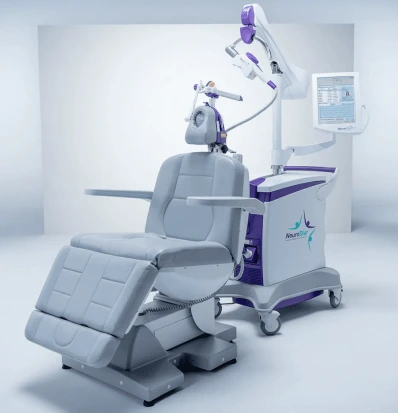
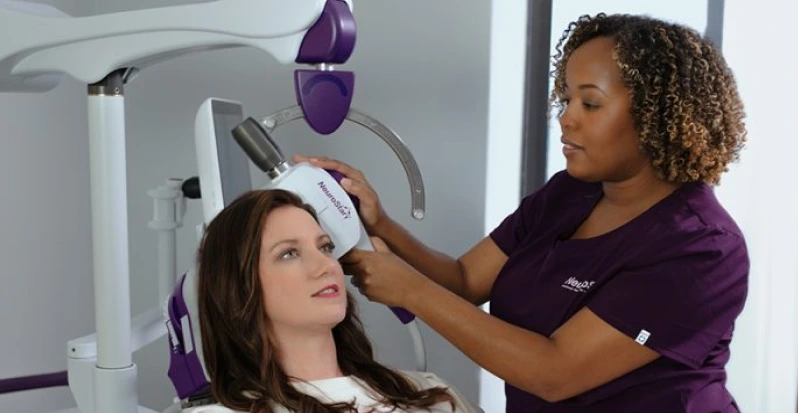
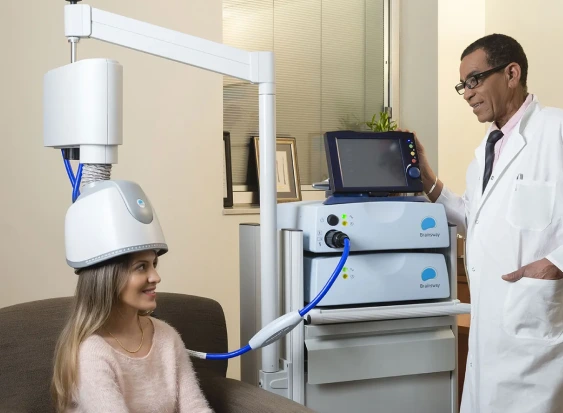
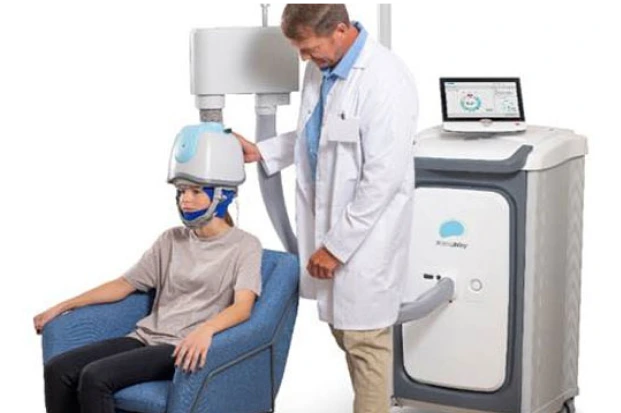
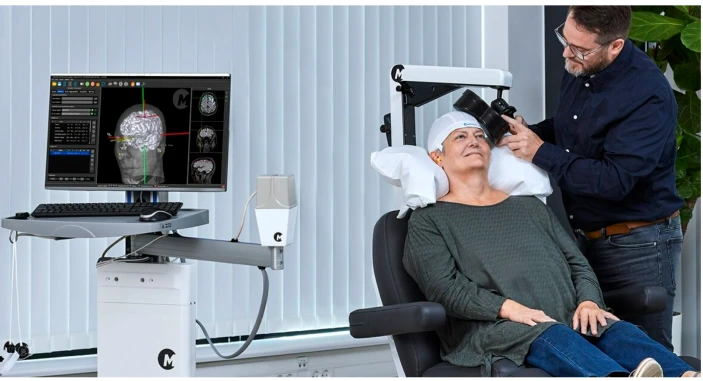
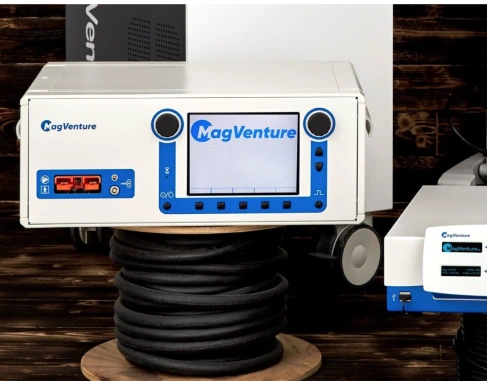
Nexstim is a Finnish company that produces the NBT Navigated Brain Therapy System. It includes a neuronavigation function called SmartFocus, which allows TMS practitioners to create a 3D map of the patient’s brain instead of using the motor threshold detection method. This device was initially designed to help neurosurgeons plan brain surgery, but a version of it is now also cleared by the FDA for alleviating depression symptoms. Nexstim machines can perform various TMS treatments using rTMS and iTBS protocols.
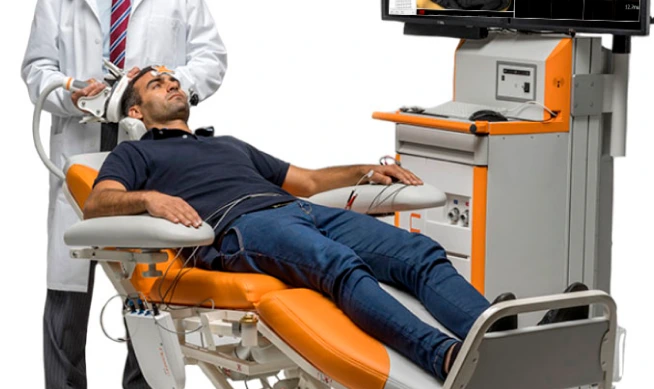
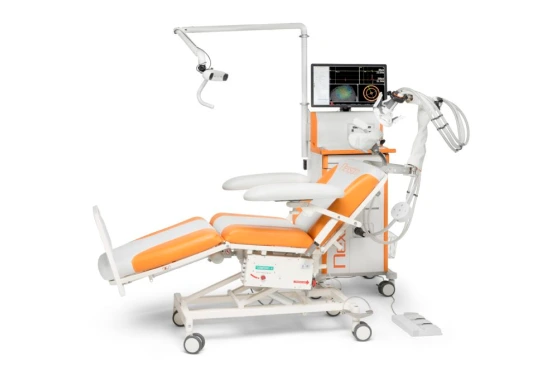
Apollo TMS therapy device is manufactured by MAG & More in Germany. It is based on the HANS (Head-and-Neck-Support) coil positioning system and has other advanced features. Apollo received FDA clearance for treating MDD that did not respond to antidepressant medications.
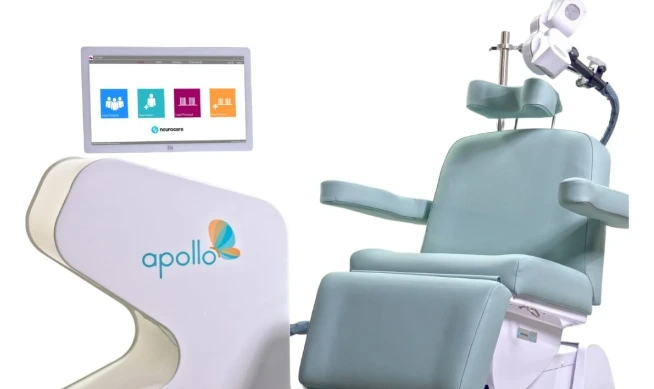
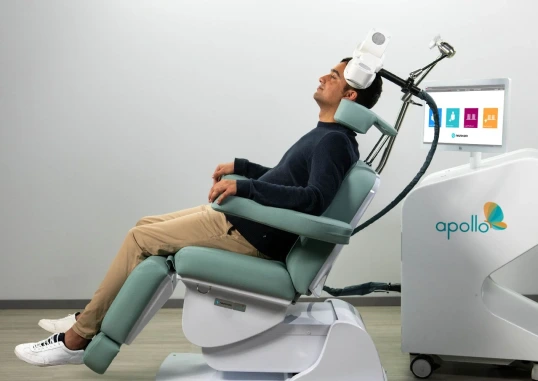
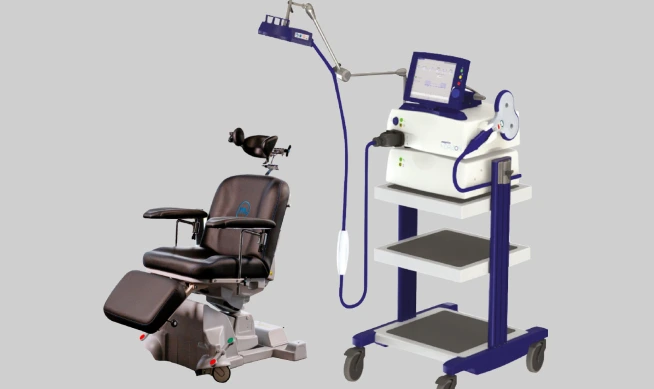
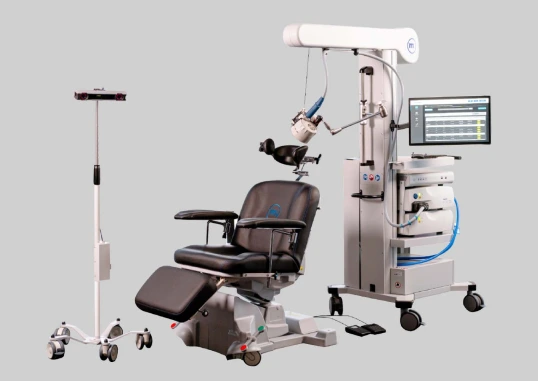
Soterix Medical is a company that produces MEGA-TMS™. This device combines TMS with neuronavigation, making it possible to target a specific brain area without using motor threshold detection. MEGA-TMS™ includes many advanced functions, such as low heat output performance and minimized electromagnetic interference. This system can provide 37.5- and 19-minute treatments with or without neuronavigation.
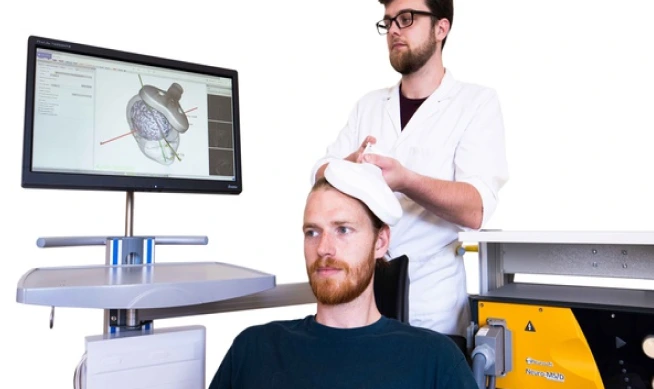
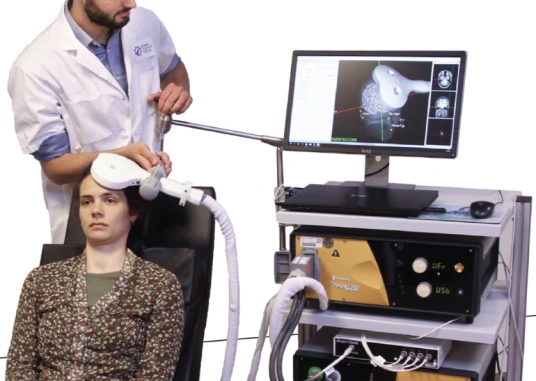
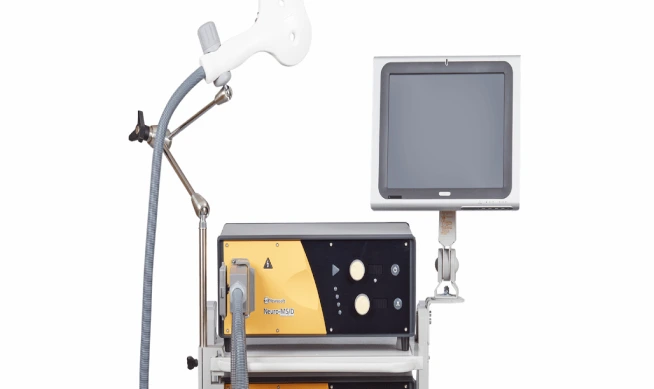
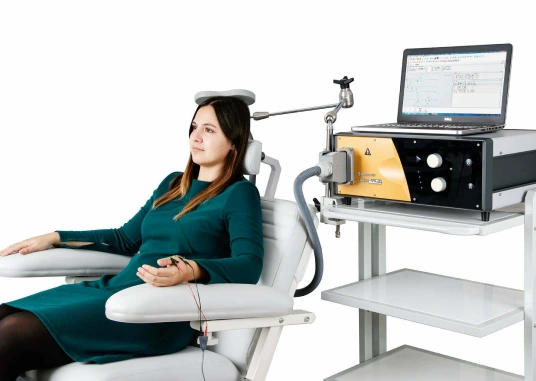



TMS therapy requires regular sessions over 4-9 weeks. Each treatment lasts 30-60 minutes. TBS therapy is more intense and involves a shorter procedure time of 3-5 minutes. The healthcare provider sets the initial frequency and duration based on the patient’s condition. Over time, the parameters may be adjusted to achieve optimal results.
The number of sessions varies based on the individual and intended outcome of TMS treatment. Maintenance procedures might also be recommended after the initial course is completed. TMS aims to provide lasting neuromodulation in the brain by repeating the precision-targeted magnetic pulses over time.




TMS therapy requires regular sessions over 4-9 weeks. Each treatment lasts 30-60 minutes. TBS therapy is more intense and involves a shorter procedure time of 3-5 minutes. The healthcare provider sets the initial frequency and duration based on the patient’s condition. Over time, the parameters may be adjusted to achieve optimal results.
The number of sessions varies based on the individual and intended outcome of TMS treatment. Maintenance procedures might also be recommended after the initial course is completed. TMS aims to provide lasting neuromodulation in the brain by repeating the precision-targeted magnetic pulses over time.

If you or a loved one is struggling with treatment-resistant depression or other mental health conditions, know that you are not alone. TMS Therapy Near Me is here to help. We are experts in TMS therapy, which has shown great promise in helping people who have not responded to conventional treatment. Unlike vagus nerve stimulation or electroconvulsive therapy, TMS is non-invasive and well-tolerated. It may alleviate bothersome symptoms and help people achieve mental wellness.
